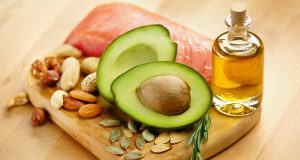Everyone has certain foods that they absolutely love. What happens with that love for a food turns into a dependency? Is food addiction possible, and if so what makes certain foods more addictive than others?
Research is finding that not only is food addiction possible, it affects over 70 million adults across the United States. 70 million. Can you believe it?
Scientific researchers are now searching for the most addictive foods. One study at the University of Michigan asked 500 people if they had trouble controlling their consumption of any particular foods – from broccoli to pizza. Surprise, surprise – the top addiction-inducing foods were soda, pizza, chocolate, chips, cookies, cake, French fries, and ice cream. Fresh fruits and vegetables were at the very bottom of the list.
The study found that the addicting foods tended to be processed and high in carbohydrate and sugar content. So here comes the kicker – researchers hypothesize that not only is it the sugar that prompts dependency, but that food manufacturers purposefully add that sugar in order for consumers to become dependent upon their products.
“In a similar manner that drugs are processed to increase their addictive potential, this study provides insight that highly processed foods may be intentionally manufactured to be particularly rewarding through the addition of fat and refined carbohydrates, like white flour and sugar,” said Erica Schulte, lead author of the study and graduate student at the University of Michigan.
Today, 10% of people in the U.S. are addicted to sugar. The word addiction is no accident; studies now suggest that sugar induces a reward stimulus in the brain similar to that of illegal drugs. This makes the brain dependent upon sugar, and induces cravings, which in turn, feed the brain’s dependency on sugar. It truly is a vicious cycle.
Excess sugar doesn’t just affect your pancreas, insulin, and blood sugar levels. It triggers elevations in blood pressure, cholesterol, and heart rate, as well. Consuming sugar also increases risk of heart disease, heart attack, stroke, and a host of other diabetes-related complications.
Decades ago, the sugar industry paid off Harvard scientists to lie about what roles sugar and fat play in your diet. Even though there was plenty of evidence to prove them wrong, these scientists chose to publish only the studies that supported their scheme.
Their goal was to reduce or eliminate the role that sugar plays in heart disease. They had to have a bad guy, so they suggested that fat played a bigger role than it actually does. Their review appeared in the highly trusted New England Journal of Medicine in 1967, prompting the misconception that fat is bad for health, when sugar is the true villain.
So how can we try to prevent food addiction? Avoiding trigger foods is the most straightforward solution, but sometimes that isn’t easy. Identify the foods that induce your compulsions to eat (or over-eat) and then find alternative foods to enjoy.
For example, cauliflower is a diamond in the rough when it comes to hacking your favorite indulgent foods. Forget about the pasty, bland cauliflower you may have known before now; open your eyes (and your mouth) to its potential. What would you give to enjoy some fried rice, pizza, or macaroni and cheese right now?
Try this recipe for low-carb Cauliflower Fried Rice. For “pizza crust” use your food processor to get the cauliflower very fine, then mix with cheese, eggs and spices. Top with your favorite sauce, meats and veggies, for a pizza that is high in fiber, low in carbs, and out of this world delicious! Not to mention the cauliflower in this recipe for Almost Mac-N-Cheese that is sure to be a family favorite!
Finding the balance between eating what you need and eating what you want is essential for keeping blood sugar under control. Food is fuel for both body and soul, and having a healthy relationship with food is absolutely essential to diabetes management.
Sources:
https://www.cnn.com/2015/10/23/health/pizza-and-other-foods-addicting/
http://www.orlandosentinel.com/health/addiction-recovery/os-food-addiction-numbers-rising-20160902-story.html
 Diabetic Kitchen
Diabetic Kitchen





Recent Comments